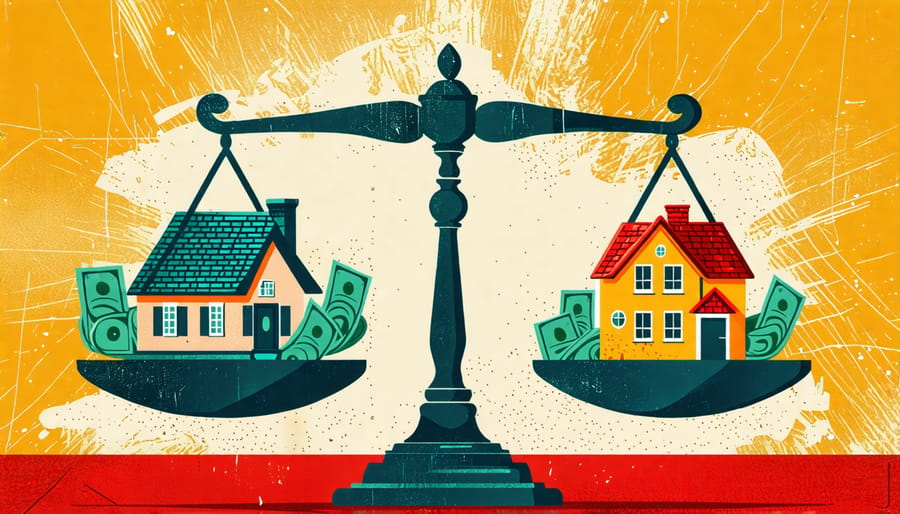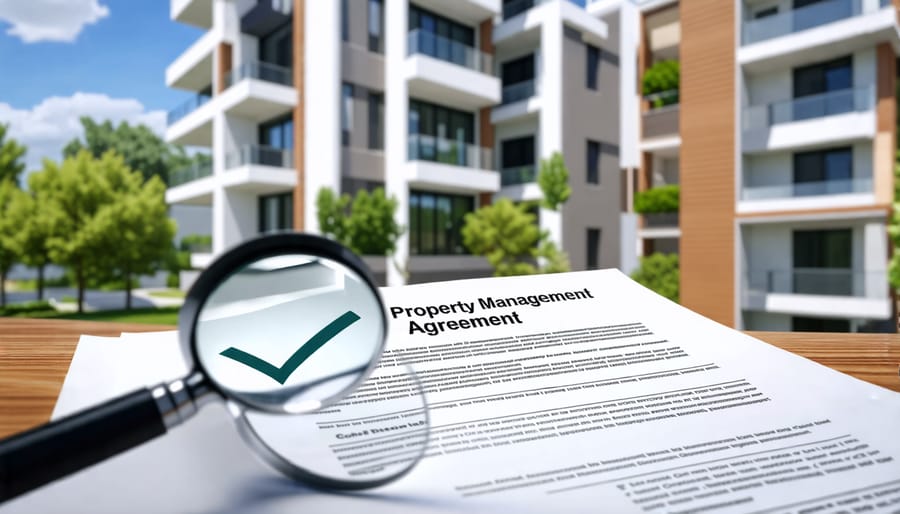Ensure your property management agreement clearly defines the scope of services, including maintenance, repairs, tenant screening, and rent collection. Specify the property managers‘ responsibilities, authority limits, and reporting requirements to maintain transparency and accountability. Include provisions for compensation, such as management fees, leasing commissions, and expense reimbursements, to avoid misunderstandings. Address liability, insurance, and indemnification clauses to protect both parties and clarify risk allocation. Incorporate termination conditions, dispute resolution methods, and confidentiality agreements for protecting the interests of the property owner and manager. By carefully crafting these essential elements, your property management agreement will serve as a robust foundation for a successful partnership.
Scope of Services

Property Maintenance and Repairs
The property management agreement should clearly outline the property manager’s responsibilities for maintaining and repairing the property. This includes routine maintenance tasks such as landscaping, pest control, and cleaning common areas, as well as handling emergency repairs and coordinating with vendors. The agreement should specify any dollar amount thresholds for repairs that require owner approval, typically ranging from $500 to $2,500 depending on the property’s size and complexity. It’s crucial to establish clear communication channels between the property manager and owner regarding maintenance issues and repair costs. The property manager should provide regular updates on completed repairs and maintain detailed records of all maintenance expenses. By clearly defining these responsibilities and approval processes, property owners can ensure their assets are well-maintained while giving property managers the authority to act quickly when necessary, minimizing potential damage and tenant dissatisfaction.
Tenant Management
The property management agreement should clearly outline the manager’s responsibilities for tenant management. This includes finding qualified tenants through effective marketing strategies, conducting thorough background checks and screening processes, and executing leases on behalf of the property owner. The agreement should also specify the manager’s role in facilitating tenant move-ins and move-outs, ensuring proper documentation and inspection of the property’s condition. Additionally, the contract should address the manager’s authority and procedures for handling tenant complaints, enforcing lease terms, and initiating eviction proceedings when necessary. By detailing these tenant management duties, the agreement establishes clear expectations and protects the interests of both the property owner and the management company.
Compensation and Fees
Property managers can be compensated in various ways, depending on the agreement with the property owner. One common approach is to charge a percentage of the monthly rent collected, typically ranging from 8% to 12%. This aligns the property manager’s interests with the owner’s, as maximizing occupancy and rent collection benefits both parties. Another option is a flat monthly fee, which provides predictable costs for the owner but may not incentivize the manager to optimize rental income. Some contracts use a hybrid model, combining a base fee with performance bonuses tied to metrics like occupancy rates or tenant retention. In addition to the management fee, property managers may charge owners other fees for specific services. These can include leasing fees for finding and screening new tenants, maintenance fees for overseeing repairs and upkeep, and administrative fees for handling paperwork and accounting. Late payment fees, eviction fees, and vacancy fees are also common. It’s essential for owners to carefully review and negotiate these fees upfront to avoid surprises and ensure they align with industry standards. A well-structured compensation plan should provide fair payment to the manager while protecting the owner’s interests and bottom line.
Liability and Insurance
Liability and insurance provisions are critical components of any construction project agreement, as they help protect all parties involved from potential financial losses and legal disputes. Clearly outlining each party’s responsibilities and insurance requirements can significantly mitigate risk and ensure a smoother project execution. When drafting liability and insurance clauses, it’s essential to address common issues such as general liability, workers’ compensation, professional liability, and property damage. The agreement should specify the minimum insurance coverage required for each party, including the contractor, subcontractors, and property owner. It should also outline the indemnification obligations, which determine who is responsible for any losses, damages, or legal fees incurred during the project. Additionally, the agreement should address any specific risks associated with the project, such as environmental hazards, and require appropriate insurance coverage for those risks. It’s crucial to ensure that all insurance policies are in place before work begins and that they remain active throughout the duration of the project. By carefully crafting liability and insurance provisions, construction professionals and property owners can protect themselves from unexpected costs and legal battles, ultimately contributing to a more successful project outcome.

Contract Duration and Termination
The contract duration and termination section should clearly define the initial term of the agreement, specifying the start and end dates. It should also outline any renewal options, such as automatic renewal for successive one-year terms unless either party provides written notice of non-renewal within a specified timeframe prior to the end of the current term. Furthermore, the agreement should detail the circumstances under which either party may terminate the contract before its expiration. Common termination rights include material breach of contract, insolvency or bankruptcy, and failure to meet performance standards. The agreement should specify the notice period required for termination and any applicable cure periods for remediable breaches. For the property owner, it is crucial to secure the right to terminate the agreement if the management company fails to meet its obligations or if the owner decides to sell the property. The management company, on the other hand, should ensure that termination provisions are fair and provide adequate notice to allow for a smooth transition. Clear and concise language in the contract duration and termination section benefits both parties by minimizing the risk of disputes and misunderstandings. It provides a roadmap for the ongoing relationship and establishes a framework for addressing potential issues that may arise during the contract term.

